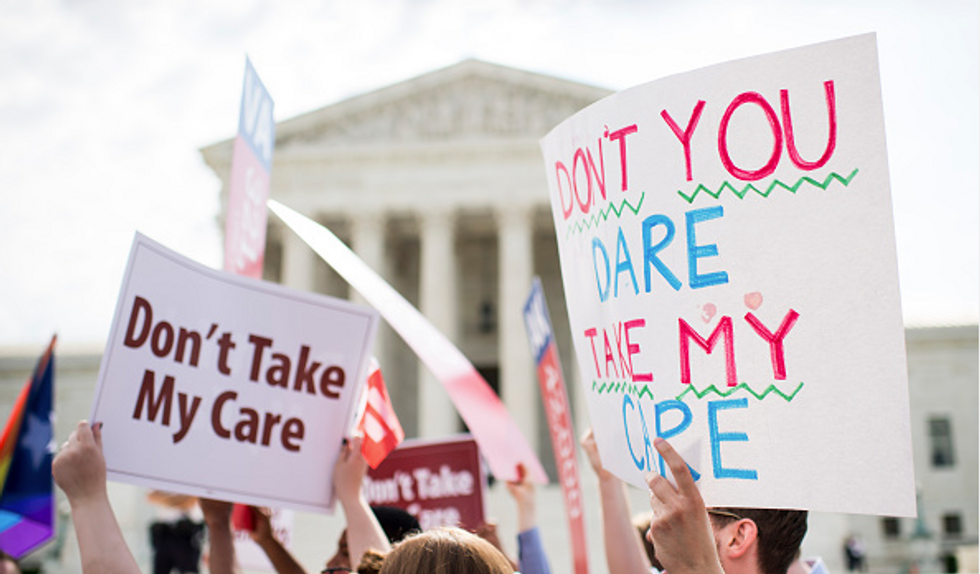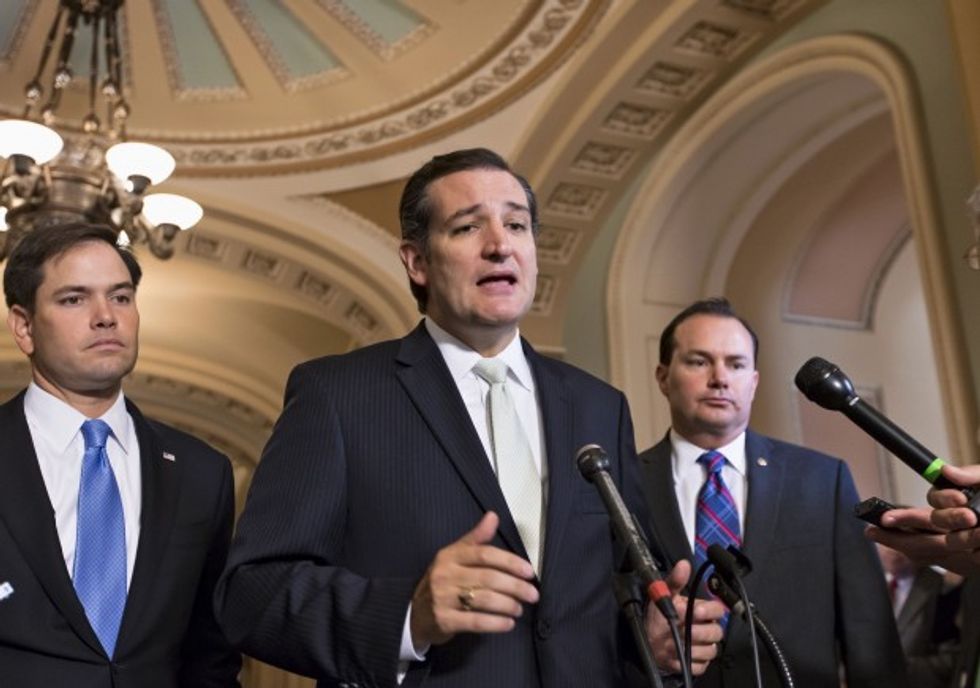
The House Budget Committee's ranking Republican Rep. Paul Ryan, R-Wis., listens to comments on Capitol Hill in Washington, March 15, 2010, during the committee's markup on the Reconciliation Act of 2010. (AP Photo/Haraz N. Ghanbari)

The House of Representatives on Friday passed H.R. 3762, the Restoring Americans’ Healthcare Freedom Reconciliation Act, legislation that could make it much easier for the Senate to take apart much of Obamacare and restrict the funding for Planned Parenthood. The bill uses budget reconciliation, which will allow the Senate to pass these measures with just 51 votes. Here are five things to know about reconciliation as the budget battle continues to unfold:
Because of the filibuster rule, nearly all consequential legislation must have 60 votes to invoke cloture and end debate before the bill can pass the Senate. But there are only 54 Republican senators — one reason it’s been tough for Republicans in control of the House and Senate to send bills to President Barack Obama's desk.

The one exception to the filibuster rule is budget reconciliation, an expedited legislative procedure for a budget resolution to bring revenue and spending in line with budget resolution targets. It would require only 51 votes to pass in the Senate and is limited to 20 hours of debate.
A reconciliation bill is also subject to the “Byrd Rule,” named for former Sen. Robert Byrd (D-W.Va.), which prohibits non-budget-related provisions from being added to the bill.
Since 2011, more than 40 Republican House bills have been passed by the lower chamber with some type of repeal of Obamacare, but those bills had little chance of passing a Democrat-controlled Senate — or even the non-filibuster-proof Republican Senate this year. Republicans have complained that they don’t have the votes to pass major legislation and put it on the president’s desk.
However, Obamacare costs money, so under budget reconciliation, most of Obamacare's taxing and spending provisions can be unraveled.
Specifically, the measure that passed the House repeals the penalties for the individual and employer mandate; eliminates the 40 percent excise tax on high-cost health plans, also referred to as the “Cadillac tax”; eliminates the medical device tax; and repeals the preventions and public health fund.
The bill furthers prohibits federal funding – including Medicaid dollars – for one year to abortion providers while the House investigates Planned Parenthood, redirecting funding to community health centers.
Make no mistake, President Barack Obama will veto any bill that dismantles even part of Obamacare. So what’s the point of dismantling large chunks of Obamcare in the House and Senate?
 President Barack Obama signs Obamacare into law. (AP)
President Barack Obama signs Obamacare into law. (AP)
Conservatives believe that pushing a bill to the president’s desk will at least force Obama to the negotiating table. It would also force the president to defend the unpopular law, while allowing Republicans to take their case to the American public as to why it should be defunded through the budget process.
Heritage Action, one of the leading conservative groups in Washington, wants a stronger House bill. But the group explained why it backs the reconciliation process this way:
Reconciliation is a powerful tool to get legislation through Congress, but it has no value as a law-making exercise with President Obama in the White House (i.e. any Republican bill will be vetoed; any bill he would sign would get Democrat support and 60 Senate votes and not need the reconciliation process). Therefore, reconciliation should be used on a unifying effort to create a contrast with President Obama and send a winning message to the American people. And nothing unifies Republicans and provides a better messaging opportunity than repealing Obamacare.But that is not all: Using reconciliation this year is important because it should be a trial run for 2017, when we will hopefully have a President willing to sign a full repeal bill. If we are short of 60 votes in 2017, then we will need to use the reconciliation process to accomplish this. If we do it now and do it right, we can ensure full repeal is a fait accompli in 2017.
Two Republican presidential candidates were part of a joint statement Thursday asserting the House reconciliation bill does not go far enough, though they do agree that the reconciliation process is the best route for achieving full repeal.
Texas Sen. Ted Cruz and Florida Sen. Marco Rubio, two 2016 contenders who are in the top five in several Republican presidential polls, joined Sen. Mike Lee (R-Utah). They said the House bill should be amended to included full repeal of Obamacare.

“On Friday the House of Representatives is set to vote on a reconciliation bill that repeals only parts of Obamacare. This simply isn’t good enough,” the joint statement from Cruz, Lee and Rubio said. “Each of us campaigned on a promise to fully repeal Obamacare and a reconciliation bill is the best way to send such legislation to President Obama’s desk. If this bill cannot be amended so that it fully repeals Obamacare pursuant to Senate rules, we cannot support this bill. With millions of Americans now getting health premium increase notices in the mail, we owe our constituents nothing less.”
 Rep. Paul Ryan (R-Wis.), chairman of the Budget Committee and the favorite to become the next speaker of the House, has advocated using the budget reconciliation process to repeal much of Obamacare (AP/Haraz N. Ghanbari)
Rep. Paul Ryan (R-Wis.), chairman of the Budget Committee and the favorite to become the next speaker of the House, has advocated using the budget reconciliation process to repeal much of Obamacare (AP/Haraz N. Ghanbari)
Rep. Paul Ryan (R-Wis.) said in 2012 that budget reconciliation could dismantle 85 percent of Obamacare by ditching taxing and spending requirements.
Now, Ryan is likely set to become the next speaker of the House and will face pressure from conservatives to live up to what he said then.
In a July 2012 interview with conservative talk radio host Mark Levin, then-House Budget Chairman Ryan said, “We can always use reconciliation, which has always been our plan and is our plan.”
Ryan went on to say, “What I tell people at home is I think we can get 85 percent of it for sure repealed through reconciliation.”